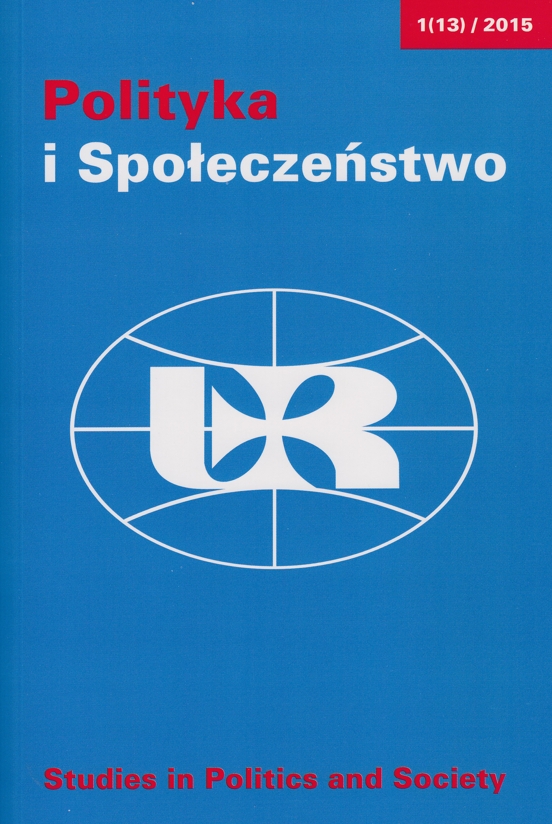Wpływ ustawy kwotowej na zakres podmiotowości politycznej kobiet w Polsce na przykładzie wyborów do Sejmu w 2011 roku oraz wyborów do Parlamentu Europejskiego w 2014 roku
DOI:
https://doi.org/10.15584/polispol.2015.1.3Słowa kluczowe:
the quota system, gender equality, the Sejm of the Republic of Poland, the European ParliamentAbstrakt
The aim of the above-mentioned analysis was a statement whether and how legal acts concerning gender equality, written in Electoral code (adopted by the Sejm of the Republic of Poland on 5th January 2011), support women in the political sphere. In the first part of the article the origins of the introduction of quota solutions in Poland are outlined and their full text is presented. The next part of the article shows the influence of the adopted regulations on the results of the 2011 elections to the Sejm of the Republic of Poland and the European Parliament. The summary presents the most important conclusions. The article also proves the thesis that the quota system led to a significant growth in the number of women standing as a candidate in elections. However, it failed to have such an impact on the number of women elected to representative bodies. It led to the conclusion that despite the legal validation of electoral quotas, there are many factors which can increase women’s political subjectivity, e.g. a place given on electoral register or their electoral constituency. This situation explains the purpose of the supplementing of the quota mecha-nism by a zipping system, which means the alternate order of women and men can-didates on electoral list and makes it difficult to fill compulsory quotas with a signif-icant number of women in an electoral constituency in which a given party has in-sufficient support.Pobrania
Opublikowane
2021-04-21
Jak cytować
Pięta-Szawara, A. (2021). Wpływ ustawy kwotowej na zakres podmiotowości politycznej kobiet w Polsce na przykładzie wyborów do Sejmu w 2011 roku oraz wyborów do Parlamentu Europejskiego w 2014 roku. Polityka i Społeczeństwo, 13(1), 36–45. https://doi.org/10.15584/polispol.2015.1.3
Numer
Dział
Artykuły
Licencja

Utwór dostępny jest na licencji Creative Commons Uznanie autorstwa – Na tych samych warunkach 4.0 Miedzynarodowe.


